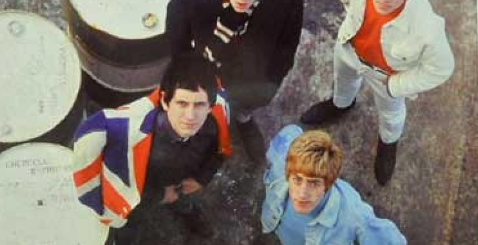Teenage Wasteland by The Who Lyrics Meaning – The Anthem of Lost Youth and Rebellion
Lyrics
I fight for my meals
I get my back into my living
I don’t need to fight
To prove I’m right
I don’t need to be forgiven
Yeah, yeah, yeah, yeah, yeah, yeah
Don’t cry
Don’t raise your eye
It’s only teenage wasteland
Sally, take my hand
We’ll travel south ‘cross land
Put out the fire and don’t look past my shoulder
The exodus is here
The happy ones are near
Let’s get together before we get much older
Teenage wasteland
It’s only teenage wasteland
Teenage wasteland, oh yeah
Teenage wasteland
They’re all wasted
In the annals of rock history, few songs have encapsulated the spirit of youthful angst and societal disconnection as poignantly as The Who’s ‘Teenage Wasteland.’ More formally known as ‘Baba O’Riley,’ this landmark track continues to reverberate through the generational divide, offering both a reflection of its time and a timeless narrative of the teenage experience.
Widely misinterpreted due to its popular moniker, ‘Teenage Wasteland’ unfolds as a canvas bearing a deeper message about the loss of innocence and the disillusionment faced by the post-war generation. Let’s delve into the profound nuances that have made this song an enduring staple of rock n’ roll lore.
The Cry of Disenchanted Youth in a Post-Woodstock Era
The Who, hailing from the crucible of the British Invasion, were no strangers to dissecting the zeitgeist of their times. ‘Teenage Wasteland’ emerges as a war cry, a two-finger salute to an establishment that had promised much but delivered little. Amidst the aftermath of the sublime promise of the sixties and Woodstock’s utopian shadow, the song reverberates with the stark realization that the dream had indeed gone awry.
Not just the literal fields where post-war teenagers fought for an essence of living, but symbolic fields of battle, where they confronted rigid social structures and antiquated ideologies. The Who’s anthem mirrors the tenebrous milieu of that era, teetering on the brink of radical shifts and technological leaps, the historical background providing a grim yet fertile ground for the song’s wake-up call.
Unveiling the Hidden Meaning Behind the Iconic Refrain
At first glance, ‘It’s only teenage wasteland’ might read as a dismissive statement towards youth culture, but beneath its surface lies a cogent critique of how society discards its young. It isn’t the teenagers who are wasted, but the metaphorical wasteland they inherit—a terrain blighted with broken promises and evaporating opportunity.
The Who doesn’t point fingers at the youth but rather at the world that fails them. The refrain becomes an ironic nod to the misinterpretation of the young generation as wayward and wasteful, when in fact, they are navigating a landscape hollowed out by the generations that came before them.
A Lyrical Journey From Disconnection to Hope
There’s a palpable journey within the lyrics of ‘Teenage Wasteland.’ We begin entangled in the throes of disconnection: ‘Out here in the fields / I fight for my meals.’ A gritty survivalism pervades the opening lines, painting a portrait of gritty individualism, a far-flung cry from the communal bliss that once defined the sixties counterculture explosion.
But from the somber opening emerges a hopeful beckoning: ‘Sally, take my hand / We’ll travel south ‘cross land.’ Perhaps The Who presents a narrative escape—a potential exodus from the ‘wasteland.’ But then again, maybe it’s an internal journey, one from despondency to an embrace of life’s baton, flawed yet furious in its intensity.
Sifting Through the Memorable Lines: More Than a Catchy Tune
‘Teenage Wasteland’ is a masterclass in storytelling through rock music lyrics. Each line is meticulously crafted to not only resonate with the listener but also to provoke thought and reflection. ‘I don’t need to fight / To prove I’m right / I don’t need to be forgiven’ echoes a newfound maturity, hinting at a detachment from societal validation and a self-acceptance that feels light years ahead of its time.
‘Don’t cry / Don’t raise your eye / It’s only teenage wasteland’ serves dual purposes. It’s a consolation, a gentle coaxing to grasp at stoicism in the face of existential inertia. Yet, it’s also a sardonic snap, a nod to the trivialization of youthful concerns by those looking down from the pedestals of age and experience.
Relevance and Resonance: A Song That Still Speaks to Generations
Decades have passed, but the echoes of ‘Teenage Wasteland’ continue to find new ears in successive generations. Its raw articulation of a generation’s internal and external wars rings just as true in modern times, making it a cultural landmark that refuses to be confined to the era of its creation.
The Who captured more than a moment or a feeling; they encapsulated a rite of passage, one that’s woven into the fabric of the teenage soul. This is why ‘Teenage Wasteland’ remains not just a song but a rite—a pilgrimage through the wasteland that every emerging generation must navigate, proving that the wasteland, and the quest through it, are as perennial as the stars.








